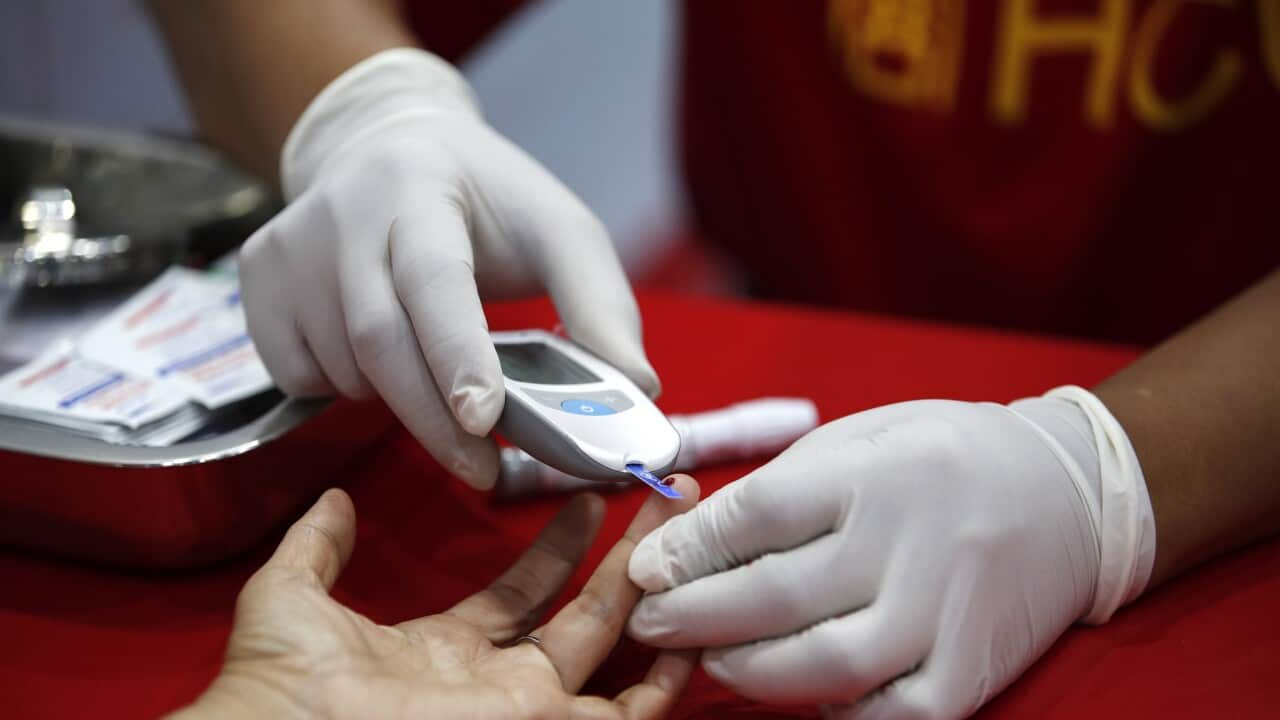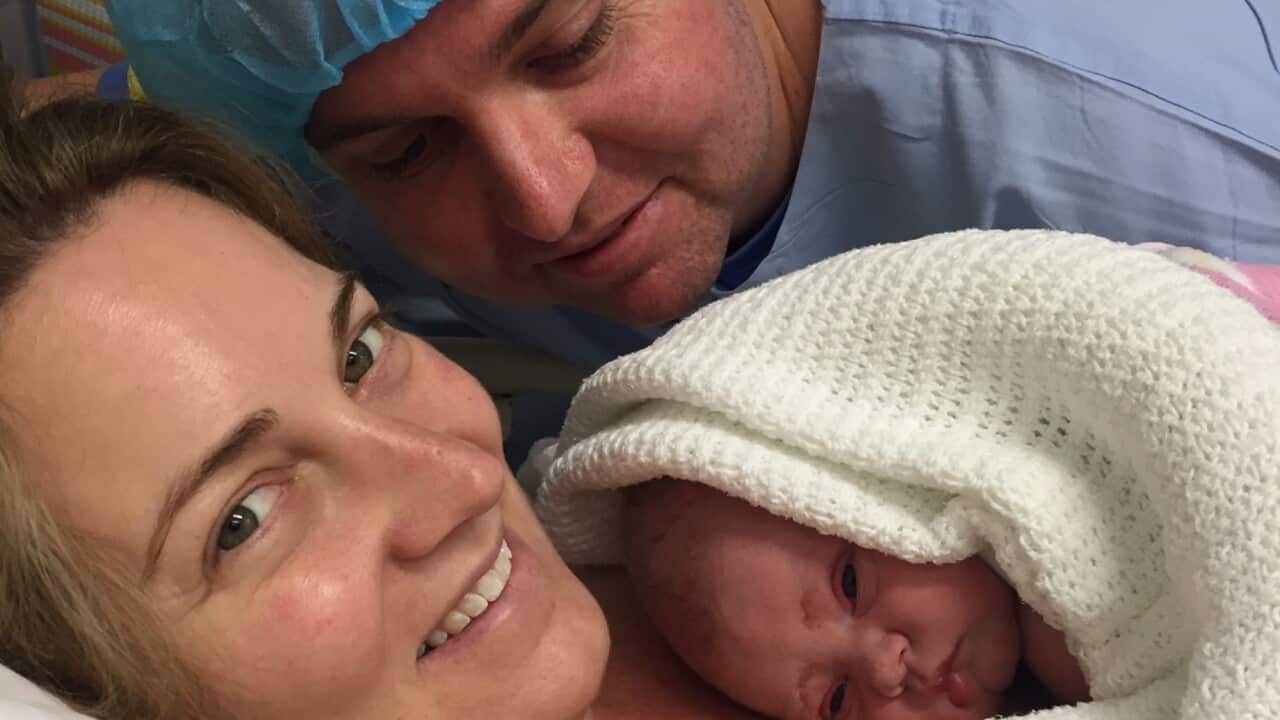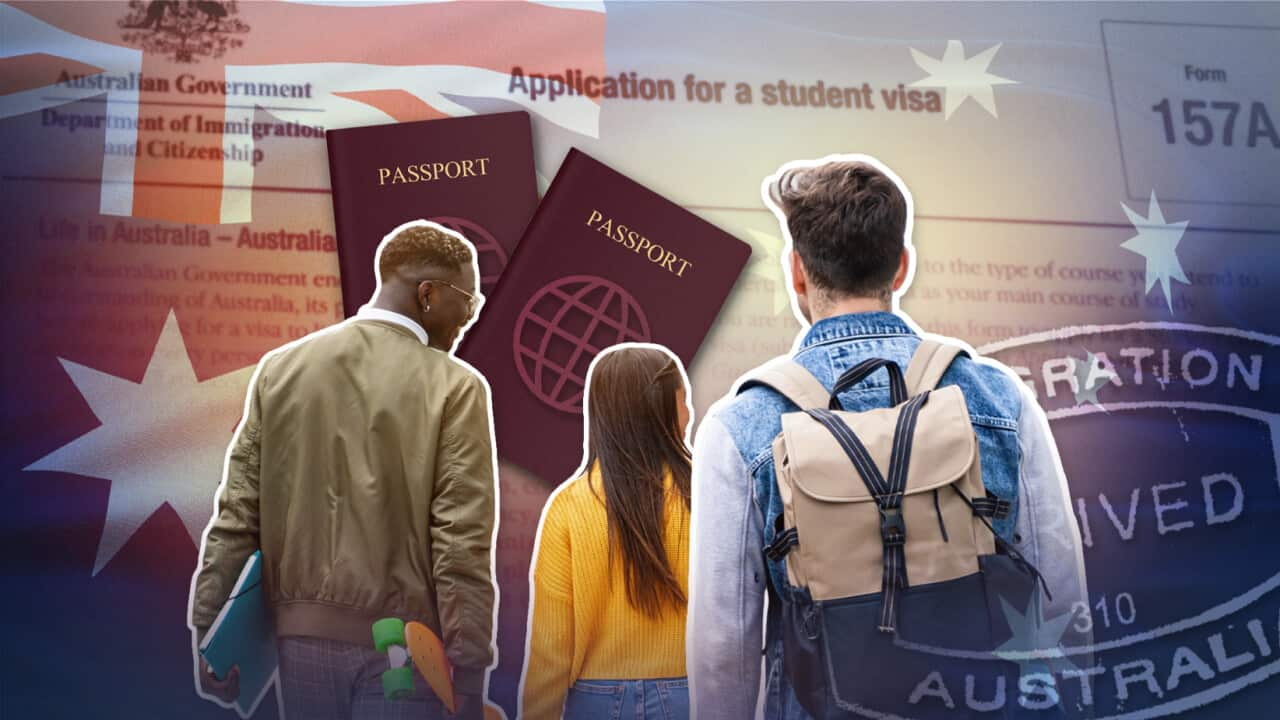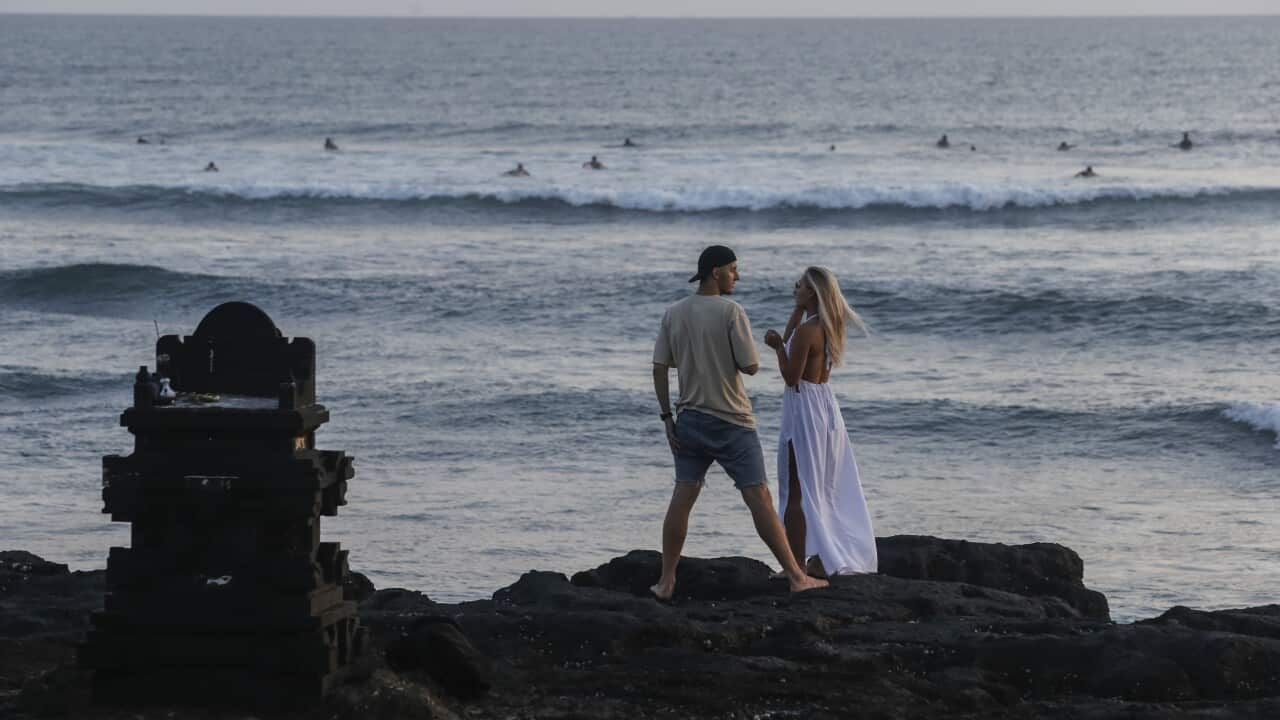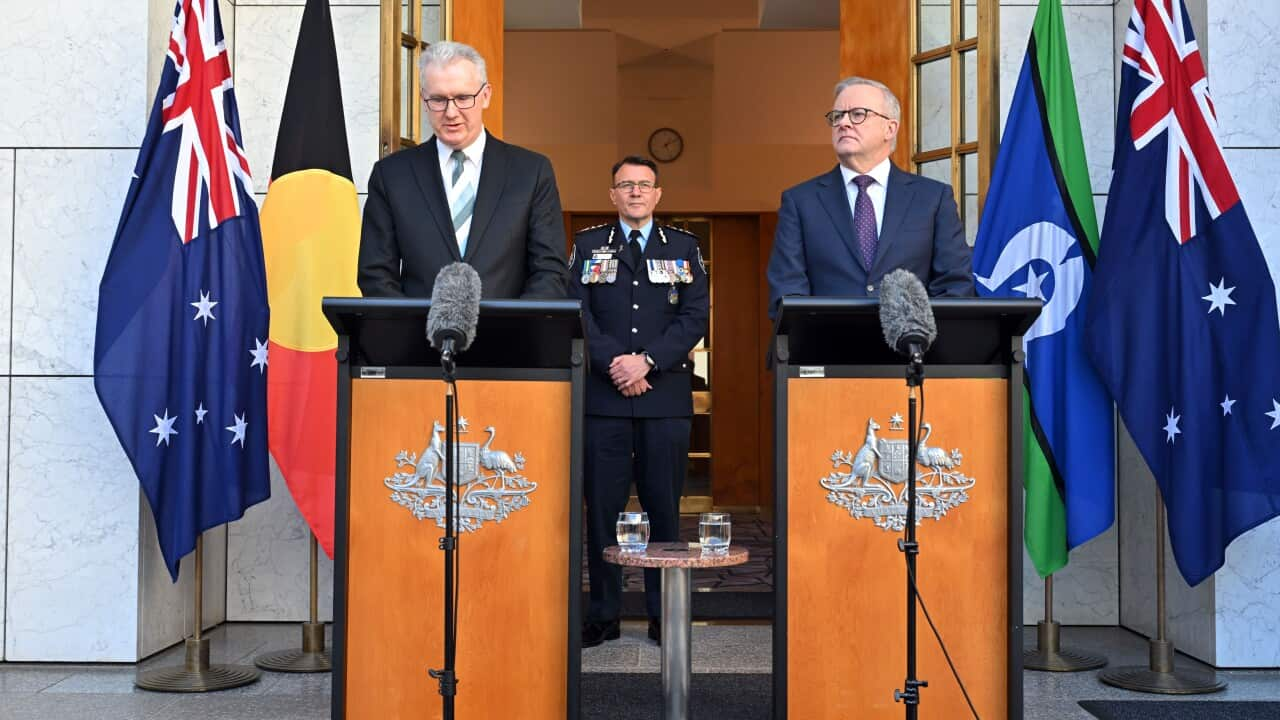TRANSCRIPT:
"Nobody chooses diabetes. Absolutely nobody. There are different types of diabetes: type one diabetes, which is an auto-immune condition and there is no known cure at this time; type two diabetes, which is when the body starts to become resistant to producing insulin. And that comes from a very complex set of circumstances including genetics, family history, environment and lifestyle."
That's Diabetes Australia's Group C-E-O, Justine Cain, talking about the often stigmatised disease: diabetes.
She says it can come in different forms and be due to a number of factors outside of diet and lifestyle.
And she's joining with health experts who are calling for new public health efforts to boost prevention of one of Australia's most common chronic conditions and top killers.
Ms Cain says there are hundreds of thousands of Australians living with undiagnosed diabetes that could have severe health consequences if left untreated.
"We know that there's about another 500,000 Australians living with silent, undiagnosed diabetes. Many people don't understand the complications that can come with diabetes and they're serious and they're costly. So it's the leading cause of blindness in working age Australians, the leading cause of kidney failure and dialysis in Australia. It increases the risk of heart disease and stroke by up to four times. It's a major cause of limb amputations and it also has a significant impact on individuals mental health."
The Australian Bureau of Statistics found that in 2022, diabetes was the seventh most common cause of death in Australia.
Between 2000 and 2021, the number of people living with diabetes in Australia increased almost threefold, from 460,000 to 1.3 million.
The Royal Australian College of General Practitioners wants Australians of all backgrounds to head to the doctor to get an understanding of whether they may have diabetes or could be at risk of developing it further down the line.
R-A-C-G-P President Dr Michael Wright says the quicker someone takes the step to get tested and catch the diseases early on, the more likely they are to go on to lead a long life.
"No matter where you live in Australia, there is access to treatment to diagnose diabetes and to treat it if you need to. The most important thing is not to put off getting tested or diagnosed because if you do get it treated, you can have a long and healthy life and we can avoid complications. But the important bit is getting that diagnosis to start with."
Dr Wright says there are proven ways to lower your chances of developing type-2 diabetes through changes in lifestyle and diet.
"We know that if you can maintain a healthy weight, keep up regular physical activity, change unhealthy to more healthy food choices, and if you keep your blood pressure, your cholesterol under control and avoid smoking, we know all of those things help for preventing and reducing your risk of diabetes."
New research from the George Institute for Global Health has suggested a couple of key public policy options to discourage the excessive consumption of foods high in added salt and sugar and encourage eating fresh fruits and vegetables, whole grains, nuts and seeds.
The researchers analysed grocery purchasing patterns from 10,000 Australian households over five years and found that food choices were heavily impacted by price.
Lead author and research associate Tazman Davies says meaningful changes to diets can be achieved by taxing things like sugary drinks and subsidising healthy food.
"So the World Health Organisation strongly recommends that countries consider taxes on sugary drinks. We know that over 100 countries have implemented taxes on sugary drinks, and there's very strong evidence that these taxes can lower people's sugar consumption. So I think if we're getting serious about tackling type two diabetes, I think attacks sugary drinks is a no-brainer. It's never the case that one policy is a silver bullet. We really need a suite of policies to best shift people's diets. And I think subsidies are also needed."
While diabetes can and does impact all Australians regardless of demographics, First Nations communities can be some of the most severely impacted.
According to the Australian Institute of Health and Wellbeing [[A-I-H-W]], Aboriginal and Torres Strait Islander Australians are three times more likely to develop type 2 diabetes than non-Indigenous Australians and four times as likely to die from it.
The Albanese government implemented a program last month to reduce prices for 30 basic items across 76 remote community stores, bringing them in line with prices in cities.
Tazman Davies is recommending an expansion of the scheme, and says subsidy policies like this, which make healthy diets more accessible, are likely to meaningfully boost health outcomes.
"I think the obvious place to start is with vulnerable communities. We know in remote areas, that's where the pricing disparities can really be the most acute and fresh fruits and vegetables and whatnot can be double the price. So I think the government has made a good first move subsidising fruits and vegetables via the Outback Stores initiative. These subsidies should produce large gains in fruit and vegetable purchasing."
In the meantime, Justine Cain has advised people to go and get checked out - the earlier the better.
"We're encouraging all Australians to go and have a healthcare check. You can jump online to the Diabetes Australia website, find out your risk factors and go and see your G-P. The initial checks are free, they're confidential and they only take about five minutes. And a simple free check could be the difference between having early detection of a type two diagnosis or living with life-threatening complications like a heart attack or stroke later in life. So we just encourage everybody to go and have that check and talk to their health professional."
